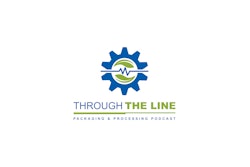This content was written and submitted by the supplier. It has only been modified to comply with this publication’s space and style.
“The Resilience Imperative: Reinventing Healthcare Supply Chains”– a report by Lisa Harrington, President of the lharrington group LLC, in collaboration with Exel – identifies a number of key trends which could derail the industry’s logistics such as emerging market growth, burgeoning regulatory and compliance requirements, changing product characteristics and rocketing counterfeit drug trafficking. Moreover, shrinking margins, escalating cost pressures and growing consumerism are transforming the business paradigm. The result is a business model that looks and acts like the consumer goods industry, where the customer – not the manufacturer – holds the power.
“Providing life-saving products is a big responsibility, one with risks that far outweigh those in a typical supply chain environment,” said Jonathan Blamey, Vice President, Life Sciences Healthcare, DHL Supply Chain. “LSH companies have to configure their business for each market, meeting the regulatory requirements and operational constraints of each healthcare system. Add in manufacturing constraints, compliance, temperature control and other factors, and you get a highly complex supply chain.”
For most industries, experiencing two or three complex challenges at one time is enough to cause turbulence. According to the white paper, the LSH sector is contending with a complex web of issues which amount to the end of business as usual and call for a corresponding change in supply chain management:
Patent cliff, changing products and profit erosion: In 2012, $38 billion of sales was lost due to patent expiration on major drugs moving to generics, while the global austerity from value-driven governments, commissioning bodies and private payers worldwide has contributed to prescription sales falling by 1.6 percent to $714 billion. A highly cost-effective supply chain that also delivers fast, reliable speed is required to meet the needs of an increasingly empowered, consumer-led market.
Emerging markets, demographic shifts and healthcare policy: By 2050, more than one third of the world’s population will be over the age of 60. In addition, emerging markets such as Brazil, Russia, India, China and Mexico and their growing middle-classes represent a significant growth opportunity for LSH companies. To adapt, LSH companies must adopt business models which allow for geographical range and therefore require tailored supply chains that deliver a higher volume of goods to increasingly diverse end points such as hospitals and distributed care in the home.
Regulations, compliance and product integrity: The growing issue of counterfeits has led to regulators enforcing stringent and diverse product integrity control. Intensified security and data collection adds pressure throughout the supply chain, as rigorous serialization is required at distribution touch points, often painstakingly at the unit rather than lot level.
Download and view the full report at http://supplychain.exel.com/LSHC_Registration. For more information about supply chain best practices, solutions and success stories, visit the Exel LSH pages at http://www.exel.com/exel/exel_life_sciences.jsp.






















